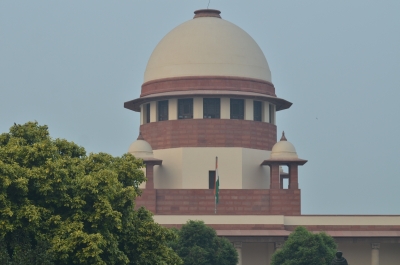Mere recovery of currency notes not enough for conviction in corruption case: SC
By IANS | Updated: October 29, 2025 19:20 IST2025-10-29T19:15:49+5:302025-10-29T19:20:11+5:30
New Delhi, Oct 29 The Supreme Court has reiterated that the mere recovery of tainted currency notes cannot ...

Mere recovery of currency notes not enough for conviction in corruption case: SC
New Delhi, Oct 29 The Supreme Court has reiterated that the mere recovery of tainted currency notes cannot justify a conviction under the Prevention of Corruption Act (PC Act), adding that the demand and acceptance of illegal gratification must be proved beyond reasonable doubt before a presumption of guilt arises.
A bench of Justices Prashant Kumar Mishra and Joymalya Bagchi restored the acquittal of a former Assistant Commissioner of Labour, P. Somaraju, who had been convicted by the Andhra Pradesh High Court in a 1997 bribery case, observing that the high court "failed to engage with the trial court’s detailed reasoning" and had substituted its own inferences "without addressing the evidentiary gaps".
"The statutory presumption under Section 20 of the PC Act is not automatic and arises only once the foundational facts of demand and acceptance are proved," the apex court held, adding that "suspicion, however strong, cannot take the place of proof."
It reiterated: "For an offence under Section 7 of the PC Act, the demand of illegal gratification is a sine qua non to prove the guilt. Mere recovery of currency notes cannot constitute an offence under Section 7 unless it is proved beyond a reasonable doubt that the accused voluntarily accepted the money, knowing it to be a bribe. The proof of acceptance of illegal gratification can follow only if there is proof of demand."
In its detailed judgment, the Justice Mishra-headed bench found several inconsistencies in the prosecution’s case, saying: "What we find particularly troubling is the complainant’s conduct in directing Rajender, the mediator and accompanying independent witness, to remain outside the appellant’s office during the crucial half-hour in which the alleged demand and acceptance occurred."
Moreover, the phenolphthalein hand-wash test on the accused yielded negative results, and the defence produced two independent witnesses who testified that the complainant was seen alone in the officer’s chamber when the alleged bribe money was placed in a drawer.
"These circumstances strike at the root of the prosecution's version and cast serious doubt on whether demand and acceptance were proved beyond a reasonable doubt,” the apex court concluded.
Finding the trial court’s acquittal "reasonable and firmly rooted in the evidence on record", the Supreme Court set aside the Andhra Pradesh High Court’s 2011 conviction order and restored the acquittal recorded by the Special Judge in 2003.
Directing that the appellant’s bail bonds be discharged, it said: "The appeal is allowed. The impugned judgment and order dated 08.07.2011 passed by the High Court of Judicature of Andhra Pradesh at Hyderabad is set aside, and the order of acquittal passed by the Court of Principal Special Judge for SPE & ACB Cases, Hyderabad is restored."
Disclaimer: This post has been auto-published from an agency feed without any modifications to the text and has not been reviewed by an editor
Open in app